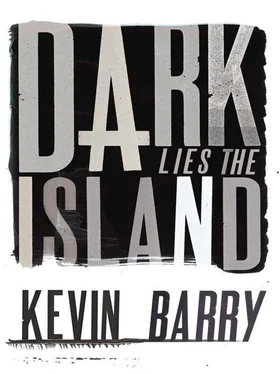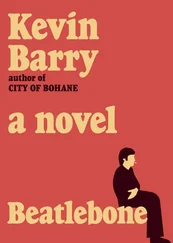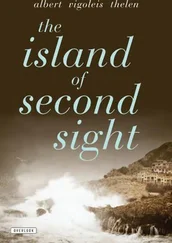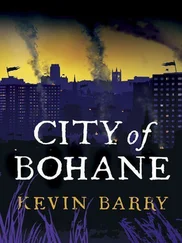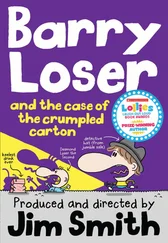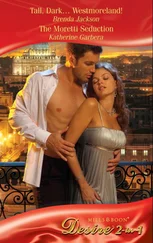Kevin Barry - Dark Lies the Island
Здесь есть возможность читать онлайн «Kevin Barry - Dark Lies the Island» весь текст электронной книги совершенно бесплатно (целиком полную версию без сокращений). В некоторых случаях можно слушать аудио, скачать через торрент в формате fb2 и присутствует краткое содержание. Год выпуска: 2012, Издательство: Jonathan Cape, Жанр: Современная проза, на английском языке. Описание произведения, (предисловие) а так же отзывы посетителей доступны на портале библиотеки ЛибКат.
- Название:Dark Lies the Island
- Автор:
- Издательство:Jonathan Cape
- Жанр:
- Год:2012
- ISBN:нет данных
- Рейтинг книги:3 / 5. Голосов: 1
-
Избранное:Добавить в избранное
- Отзывы:
-
Ваша оценка:
- 60
- 1
- 2
- 3
- 4
- 5
Dark Lies the Island: краткое содержание, описание и аннотация
Предлагаем к чтению аннотацию, описание, краткое содержание или предисловие (зависит от того, что написал сам автор книги «Dark Lies the Island»). Если вы не нашли необходимую информацию о книге — напишите в комментариях, мы постараемся отыскать её.
Dark Lies the Island
Dark Lies the Island — читать онлайн бесплатно полную книгу (весь текст) целиком
Ниже представлен текст книги, разбитый по страницам. Система сохранения места последней прочитанной страницы, позволяет с удобством читать онлайн бесплатно книгу «Dark Lies the Island», без необходимости каждый раз заново искать на чём Вы остановились. Поставьте закладку, и сможете в любой момент перейти на страницу, на которой закончили чтение.
Интервал:
Закладка:
Donie raises his glance now and finds a man wearing a thin, half-grown beard, and he is pale-eyed, and yellowish of the flesh.
‘What’s it they call you?’ the man says.
‘Donie.’
‘Ah yeah. Is it short for Domhnaill?’
‘It is.’
‘The Irish spelling?’
‘That’s right. D.O.M.H …’
‘Good …’
‘N.A.I.L.L.’
‘ Very good. Give the boy a biscuit.’
‘I ate my last biscuit.’
‘It’s an expression, you poor dumb cunt.’
Donie knows that he must rise and go but the man reaches across and lays a steel-cold hand on his. Clamps it to the bench.
‘Stop that,’ Donie says.
The man giggles.
‘I’d say the best part of Donie dribbled down the father’s leg, did it?’
The thin hard bones of the hand, the yellow of the skin … there is something the man brings to mind but Donie cannot place it specifically. He knows that there is the sensation of an animal.
‘I’ve to go now,’ Donie says.
‘If you get up I’ll kick the ankles out from under you.’
‘Don’t do that!’
Donie’s voice quakes and the words are tiny and lost almost to the roar of the river.
‘He’s sobbing!’
Donie looks at the man’s hand locked on his and the yellow of the spots on the back of the man’s hand and it comes to him, the word comes from the colouring: hyena.
‘You’re like a hyena,’ he says.
The man whistles a laugh down his nose. Another comes in quick succession. He shakes with thin hilarity. He continues to lock Donie’s hand to the bench but now moves his thumb slowly and sensuously along the back of the hand.
‘Don’t.’
‘Why?’
‘It tiddles.’
‘And what would a hyena do to you, Donie?’
‘Will you leave me go now?’
‘What would he do? A hyena?’
‘I have to go home to my mother. I have the twelve o’clock train to get.’
‘Would it have a feed off your corpse, would you say?’
‘I get the twelve o’clock to Boyle station. It gets in 12.33 p.m.’
‘Take tiny little bites, would it?’
The man grinds and bites with his teeth rapidly — he gnashes, and he aims a sharp smile at Donie.
‘Will we go for a walk so?’ he says.
Donie with all the force he can muster wrenches his hand free and rises from the bench to go. The man is up as quickly, and as he walks beside Donie, he places a hand softly on his lower back, and he whispers super-fast the bad words now.
‘Do you know what I’ll do to you when I see you down here again …’ is how it begins but the rest is lost to the high-vaulted pitch of Donie’s screech. The screech is held as a shield against the words. But the man just gently shushes.
‘Easy now, honey-child,’ he says.
The man stops suddenly, and Donie feels the hand lift from his back, and he feels the dread of the pause, and now there is a piston jerk of force from opened palm to small of back, and the man sticks a leg out to trip Donie as he flails forward, and he is sprawled on the pathway by the riverside and there are people all about, but nobody comes forward to help. Donie knows they think it’s just mad fellas fighting.
He is on the ground and the man is for a moment above him, is blocking out the sky, and he leans down close.
‘Hyena,’ he says, and walks away.
All is thrown out for Donie now as he goes through the tight streets of Sligo town. He does not stop today to look at the equipment in the mountaineering shop, and usually that is a fifteen-minute dream for Donie, a dream of crampons and frost-in-the-beard and great snowy peaks. He does not today say hello to the wood carver. He does not count the paving slabs through the arcade shortcut.
An hour is lost to trembles on the platform. And he is sat on the twelve o’clock train now but he misses its departure utterly as the eyes of the hyena burn into him. He misses Collooney and the climb to Ballymote. He has no joke for the inspector. The high land of the south county; hyena. The lost shack, and he does not today fantasise the happy family that once lived there. Boyle station; hyena.
‘What’s up with you, Donie?’
A kind man notes the distress and says the words on Elphin Road in the town of Boyle but Donie does not stop to talk to him. He does not go to Supervalu for the bag of six donuts. He goes straight back to the terrace.
The sun has come out. It is a pure white screech of sun. He hurries along the row of houses as familiar as the mouth-feel of his own teeth and he must squint into the sun, into the light, and the feeling does not break and it will not ease — hyena — until the door of the house opens for him, and it does so, and she steps outside, the moment timed to his arrival, her silhouette against the glare of the sun, mother-shaped.
BEER TRIP TO LLANDUDNO
IT WAS A pig of a day, as hot as we’d had, and we were down to our T-shirts taking off from Lime Street. This was a sight to behold — we were all of us biggish lads. It was Real Ale Club’s July outing, a Saturday, and we’d had word of several good houses to be found in Llandudno. I was double-jobbing for Ale Club that year. I was in charge of publications and outings both. Which was controversial.
‘Rhyl … We’ll pass Rhyl, won’t we?’
This was Mo.
‘We’d have come over to Rhyl as kids,’ said Mo. ‘Ferry and coach. I remember the rollercoasters.’
‘Never past Prestatyn, me,’ said Tom Neresford.
Tom N — so-called; there were three Toms in Ale Club — rubbed at his belly in a worried way. There was sympathy for that. We all knew stomach trouble for a bugger.
‘Down on its luck’d be my guess,’ said Everett Bell. ‘All these old North Wales resorts have suffered dreadfully, haven’t they? Whole mob’s gone off to bloody Laos on packages. Bloody Cambodia, bucket and spade.’
Everett wasn’t inclined to take the happy view of things. Billy Stroud, the ex-Marxist, had nothing to offer about Llandudno. Billy was involved with his timetables.
‘Two minutes and fifty seconds late taking off,’ he said, as the train skirted the Toxteth estates. ‘This thing hits Llandudno for 1.55 p.m., I’m an exotic dancer.’
Aigburth station offered a clutch of young girls in their summer skimpies. Oiled flesh, unscarred tummies, and it wasn’t yet noon. We groaned under our breaths. We’d taken on a crate of Marston’s Old Familiar for the journey, 3.9 per cent to volume. Outside, the estuary sulked away in terrific heat and Birkenhead shimmered across the water. Which wasn’t like Birkenhead. I opened my AA Illustrated Guide to Britain’s Coast and read from its entry on Llandudno:
‘A major resort of the North Wales coastline, it owes its well-planned streets and promenade to one Edward Mostyn, who, in the mid-19th century —’
‘Victorian effort,’ said John Mosely. ‘Thought as much.’
If there was a dad figure among us, it was Big John, with his know-it-all interruptions.
‘Who, in the mid-19th century,’ I repeated, ‘laid out a new town on former marshland below …’
‘They’ve built it on a marsh, have they?’ said Everett Bell.
‘TB,’ said Billy Stroud. ‘Marshy environment was considered healthful.’
‘Says here there’s water skiing available from Llandudno jetty.’
‘That’ll be me,’ said Mo, and we all laughed.
Hot as pigs, but companionable, and the train was in Cheshire quick enough. We had dark feelings about Cheshire that summer. At the North West Beer Festival, in the spring, the Cheshire crew had come over a shade cocky. Just because they were chocka with half-beam pubs in pretty villages. Warrington lads were fine. We could take the Salford lot even. But the Cheshire boys were arrogant and we sniffed as we passed through their country.
Читать дальшеИнтервал:
Закладка:
Похожие книги на «Dark Lies the Island»
Представляем Вашему вниманию похожие книги на «Dark Lies the Island» списком для выбора. Мы отобрали схожую по названию и смыслу литературу в надежде предоставить читателям больше вариантов отыскать новые, интересные, ещё непрочитанные произведения.
Обсуждение, отзывы о книге «Dark Lies the Island» и просто собственные мнения читателей. Оставьте ваши комментарии, напишите, что Вы думаете о произведении, его смысле или главных героях. Укажите что конкретно понравилось, а что нет, и почему Вы так считаете.
